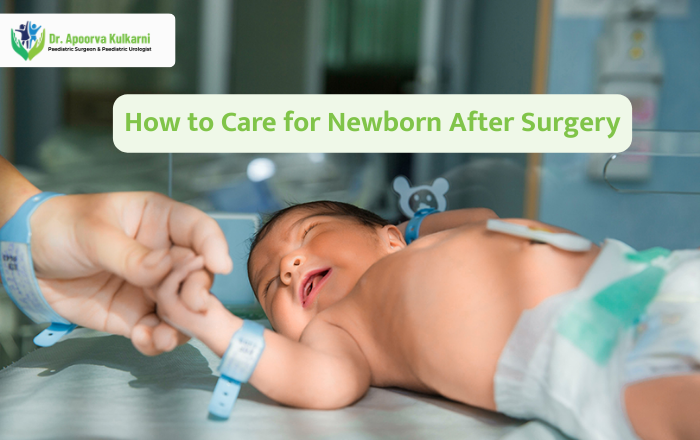
Welcoming your baby home after neonatal surgery is a moment filled with relief—and plenty of questions. You may be asking yourself: “How do I care for my baby now?” or “What if something goes wrong?”
These thoughts are completely normal.
Caring for a baby after neonatal surgery can feel overwhelming, but with the right information and daily routines, you can help your baby recover and grow stronger every day. This guide walks you through each important step in a calm, clear way—because every parent deserves to feel supported during this journey.
1. Understanding Your Baby’s Surgery and Recovery Needs
Before leaving the hospital, talk to your baby’s doctor or surgeon about what to expect at home. Each baby is unique, and understanding your baby’s specific surgery helps you prepare better.
Ask questions like:
- What kind of care does my baby need each day?
- Are there specific things I should avoid?
- When should I come in for a follow-up?
Most hospitals provide a written care plan—keep it somewhere easy to access. This plan usually includes feeding tips, how to clean the surgical site, medication times, and what signs to look out for.
2. Feeding Your Baby After Neonatal Surgery
Feeding might change depending on your baby’s surgery. Some babies can breastfeed or take a bottle right away, while others may need to start with smaller amounts or use a feeding tube.
Tips for feeding:
- Feed your baby slowly and in a slightly upright position.
- Watch for signs of tiredness—they may need breaks while feeding.
- Burp them gently and more often than usual.
If breastfeeding becomes difficult, a lactation consultant can show you ways to make it easier. And if your baby spits up often or refuses milk, don’t hesitate to contact your pediatrician.
3. Hygiene and Wound Care at Home
Your baby’s surgical site needs to stay clean and dry. While it might feel scary at first, you’ll get more confident with each passing day.
Do this:
- Wash your hands before touching the wound area.
- Clean around the site using mild soap and warm water if advised.
- Avoid using baby powder or creams unless recommended.
- Keep the area dry—sponge baths may be best at first.
Watch for warning signs:
- Redness or swelling near the wound
- Yellow or green discharge
- Fever or your baby seems unusually fussy
If you notice any of these, call your healthcare provider right away.
4. Creating a Comfortable Recovery Environment
Your baby needs rest—but also some gentle attention to comfort. Small changes in your home can go a long way.
Set up a recovery-friendly space:
- Use a firm, flat surface for sleep (like a crib with no loose bedding).
- Keep the room calm and quiet.
- Hold your baby with extra care—support their neck and body gently.
Ask your doctor how you can help manage any pain. Sometimes small changes like swaddling, white noise, or a rocking motion can soothe your baby naturally.
5. Monitoring Your Baby’s Health Daily
A baby can’t tell you when they don’t feel right, so it’s important to watch for signs through behavior and habits.
Look out for:
- Changes in breathing
- Trouble feeding or not finishing bottles
- Unusual sleep patterns or being too sleepy
- Less wet diapers than usual
Trust your instincts. If something feels off, it’s better to ask than wait.
6. Follow-Up Appointments and Long-Term Care
Even when things seem to be going well, follow-up visits are important. These check-ins help the doctor track healing, spot early signs of any issues, and make sure your baby is growing as expected.
During appointments:
- Share anything that feels different—no matter how small
- Ask for help with feeding, sleeping, or daily care
- Keep a small notebook with questions or notes from home
FAQs: Parents Often Ask
Q1. Can I bathe my baby after neonatal surgery?
Usually, sponge baths are recommended until the wound is fully healed. Ask your doctor for a timeline.
Q2. What should I do if my baby refuses to eat after surgery?
It’s common for babies to have a reduced appetite while healing. Try offering smaller feeds more often and make sure your baby is comfortable while feeding. If refusal continues for more than a day, talk to your pediatrician.
Q3. Is it normal for my baby to cry more after surgery?
Yes, some fussiness is normal during healing. But if the crying is constant or your baby seems difficult to soothe, it’s best to contact your doctor for guidance.
Caring for a baby after neonatal surgery is a journey that takes patience, love, and a little learning every day. Don’t rush yourself or compare your baby’s recovery with others. Every baby heals at their own pace—and you’re doing your best.
If you’re in Thane and need guidance from a trusted medical professional, you might consider consulting with Dr. Apoorva Kulkarni, a well-known neonatal surgeon in Thane. Parents often appreciate her thoughtful communication and calm approach during such an emotional time.
